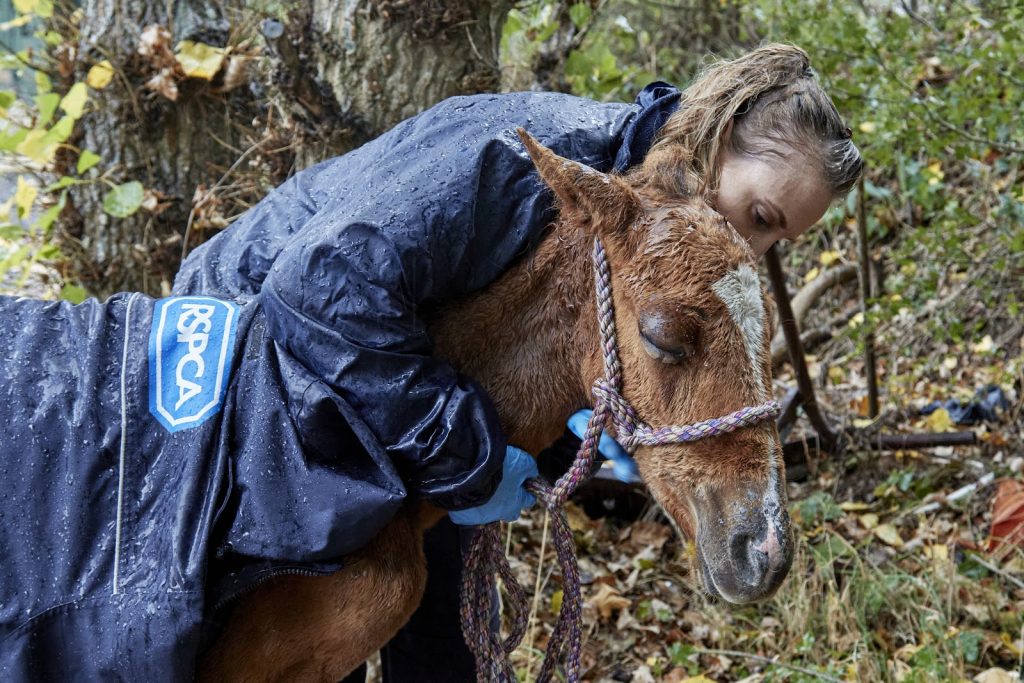

Prior to the Animal Welfare Act 2006, people only had a duty to ensure that an animal didn’t suffer unnecessarily. The Animal Welfare Act 2006 now imposes a broader ‘duty of care’ on anyone responsible for an animal.
Section 9 of the Animal Welfare Act defines five basic needs for an animal's welfare. An owner or keeper will commit an offence if they do not take such steps, as are reasonable in all circumstances, to ensure that the needs of a horse, for which they are responsible, are met to the extent required by good practice. Breaching a provision of the code is not an offence in itself, however, if proceedings are brought against an owner or keeper for a welfare offence, the Court will look at whether or not they complied with the Code in deciding whether they have committed an offence under the Animal Welfare Act 2006.
The Act defines an animal’s needs as:
Putting an animal to sleep in an appropriate and humane manner by a qualified person; is not inconsistent with the duty to ensure welfare. This is especially important in times when the equine market is saturated as aged equines, companion equines and those with health or behavioural problems stand little chance of being sold or rehomed successfully. In these cases, euthanasia can become the most responsible option and the most important decision we can make for our animals.

Section 4 of the Animal Welfare Act ‘Unnecessary suffering’. Anyone who has responsibility for an animal whether on a permanent or temporary basis, has to take reasonable steps to ensure its basic needs are met.
Field Officers
Many charities have field officers that advise and inform owners and keepers of equines of their responsibilities under the primary piece of animal welfare legislation in England and Wales, the Animal Welfare Act 2006. More often than not, these field officers will resolve the welfare concern by securing the cooperation of the owner/keeper and educating them on how best to meet their animal’s needs.
In cases where this is not possible, they may pass the welfare concern on to an agency that will take matters further, enforcing the Act by way of warning notices leading to a potential prosecution. Enforcers are usually either RSPCA inspectors, national or local authority inspectors appointed under the Act, or police officers.
When the RSPCA is taking the lead in an investigation, a police officer or local/national authority inspector is needed to assist by using their powers under the Act, as the RSPCA have no statutory powers. The Police also assist by using additional powers available under the Police and Criminal Evidence Act 1984.
Under the Animal Welfare Act 2006, there are specific powers available to police officers and national and local authority inspectors appointed under the Act to allow them to deal with equines in distress. In Scotland the SSPCA are also appointed as inspectors under the Act.
Many police officers do not regularly use this legislation so these powers may be unfamiliar to them and often it is helpful for the local authority appointed officer or charity field officer to explain the exact nature of the powers available.
RSPCA Inspectors or other organisations do not have the statutory powers to take animals into possession, if they are concerned about an animal in distress they must involve the Police (or a LA authorised officer) and a veterinary surgeon. The veterinary surgeon must certify that the animal(s) are suffering or likely to suffer if their circumstances do not change to the Police officer (or LA officer) who will then take the animal into possession and usually pass the care of the animal to the RSPCA or other organisation.
In June 2019 NEWC issued a press release explaining how their member organisations must work within the law, the article can be read here. Further information to help inform the general public about their rights and responsibilities towards animals, including sources of more detailed guidance, can be found here.
